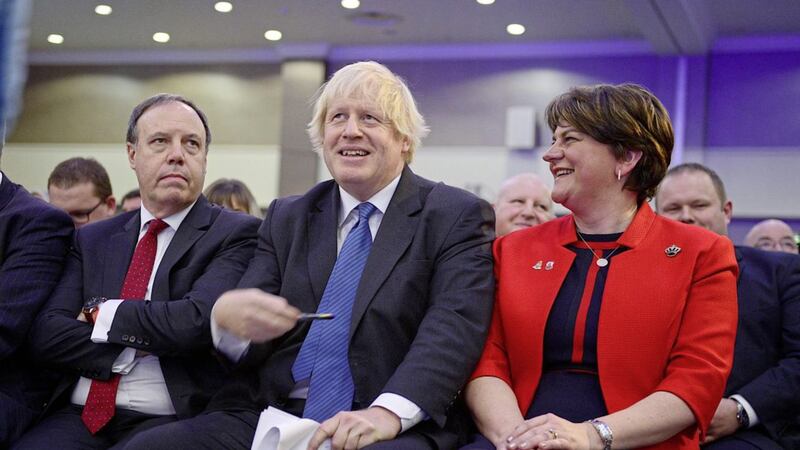As expected, the deal that was never meant to succeed has indeed failed.
The numerous reasons why Boris Johnson’s two borders one veto plan was rejected by the EU have been widely debated and dissected over the last week.
We're now being drip fed Downing Street 'briefings' from anonymous sources - widely believed to be coming from the 'dark lord' Dominic Cummings - stirring the pot and making a no deal exit more likely by the day.
It was always known that this was the preferred option of Cummings and many of those within the hard line and powerful European Research Group (ERG) wing of the Tory Party.
We have to assume the Boris Johnson is happy with this fairly unpredictable and risky communications strategy or else he would have put a stop to it long before now.
Westminster lobby journalists are breathless with excitement at the abundance of information leaking from the corridors of power.
Any one of those leaks or developments would have made front page news in a more normal political climate.
The fact that many don’t make it past Twitter before the next explosive leak takes over is yet another indication of the uncharted times we live in.
We have all secured a front row seats to history being made and as exciting as that sounds I’m not yet sure that’s a good thing.
For the first time since the referendum the DUP have found themselves on a different page to the rest of unionism in Northern Ireland.
Their no, nay, never stance on a sea border was turned on its head with the promise of goodies from the table if they played along with Downing Street’s ruse to rope the EU in to rejecting the deal, thus putting the blame at the other member states’ feet.
Speaking on UTV's View from Stormont, the DUP leader in waiting Jeffrey Donaldson said outright that the four-year plan to give Stormont a say on the single market amounted to a unionist veto, wondering why other unionists were objecting to the clearly undemocratic lock.
The idea that the other EU members states would agree to the power of veto being awarded to a small devolved region, not least one as dysfunctional as Northern Ireland was lunacy.
With all eyes now on a general election, the DUP know they will have to take responsibility for the high-risk strategy they have played alongside Boris Johnson’s government.
The deal they backed was rejected as unworkable by the business and farming communities and by other unionist parties.
Hence the hardening of language this week when Arlene Foster talked of the Irish government trying to “trap” Northern Ireland in a backstop saying it would amount to a “surrender” that no British government would agree to.
The troops need rallied and if the DUP are not concerned about the reaction of the unionist business community and what that will mean in terms of votes then they should be.
Meanwhile the British government has conceded that Northern Ireland is ill-prepared for a no-deal Brexit, while hinting that direct rule may be necessary to ensure "decision-making powers" are in place to cope with the expected upheaval.
The Cabinet Office report published this week notes that the absence of devolution has "hampered preparations" and will "critically limit" the ability of civil servants to put contingency plans in place to enable the region to cope with a disorderly Brexit.
This is not just project fear but operation reality check.
Is it time for a Northern Ireland only vote on a tailored backstop, let the people decide and allow this to be settled once and for all in a democratic way?
After all, isn’t the will of the people what we’ve been told Brexit is all about?








